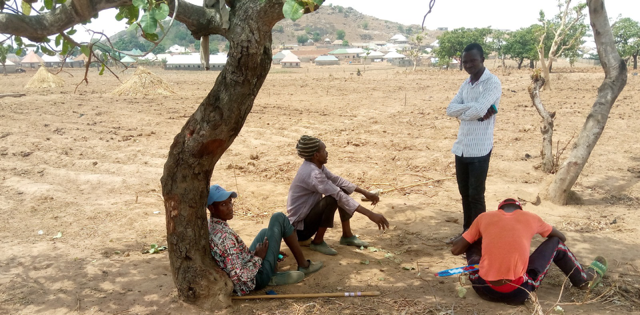In 2015, the Comity of Nations put in place the Paris Agreement, a legally binding international treaty on climate change. The agreement is considered a landmark effort in addressing Climate Change, it is a binding agreement that brings together nations for a collective cause to embark on determining work to fight climate change and adapt to its consequences.
Besides the Paris Agreement, the United Nations in its General Assemblies has since made climate change a fundamental of its discourse. Good as these ambitions look, one major obstacle to addressing climate is the inability of government and non-state actors to strategically communicate to the citizens that will spur action for its mitigation.
As the Nigerian state aligns with the rest of the world to mitigate climate change impact, it has become difficult for the state, the media, and other non-state actors to effectively communicate it to the citizens for a unified understanding that will trigger huge mitigation efforts across the board.
One key challenge in communicating Climate Change is the inability of the state and non-state actors to effectively communicate the issues using local languages.
Some locals who spoke to MAWA-Foundation say the inability of state and non-state actors to effectively communicate Climate Climate using local languages makes it difficult for the rural people to understand the issues.
Many persons, especially the rural residents who spoke to MAWA-Foundation say their response and behaviourial change towards climate change has depended on how they have received, perceived, and acted on the information provided by governments and their agencies. They say communication messages from the government on climate change were not clear and not delivered through appropriate platforms, tailored for diverse audiences, and shared by trusted people.
The state and non-state do not facilitate participatory communication that will allow the people to actively participate and proffer solutions regarding Climate Change through the communication process.
The Nigerian government and non-state actors fail to realize that citizens’ response to climate change information and messaging is heavily influenced by their cultural and social identity, age, gender, and access to resources, and there appears to be no effort to address that.
As part of the government’s efforts to address climate change, the country has put in place legislation (Climate Change Act) and established the Climate Change Council. Good as this looks, the Council is yet to effectively coordinate and work with other stakeholders to promote and enhance community engagement that will lead to effective communication and desirable responses.
Citizens’ responses
A good number of Nigerians particularly the low-income earners who spoke to MAWA-Foundation consider Climate Change as a scam and a narrative pushed by the government and its international community allies to make something that does not exist as though it exists.
How the government should address poor communication
The government must adopt public-private partnerships in the communication and campaign messages, with different segments of society and the locals whom the messages are targeted at playing a critical role in its design and dissemination. In message dissemination, the government must strive to find and make use of the most trusted medium of communication by the communities.
Audu Libert Oseni,
MAWA -Foundation Coordinator


Great analysis